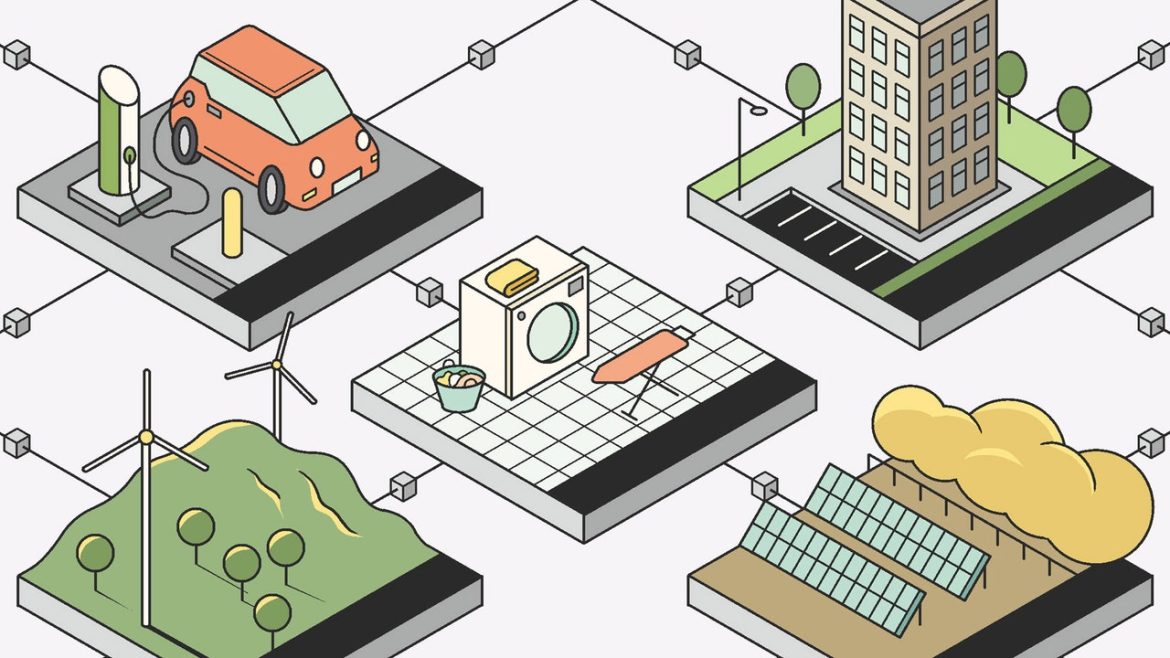Blockchain Technology Poised to Revolutionize Energy Industry
Hurdles and Opportunities for Blockchain in Energy Sector
In the longer term, the blockchain may also open up the possibility of peer-to-peer energy trading. As consumers increasingly start to produce their own power with, for example, rooftop solar panels, the blockchain’s ability to process a large volume of transactions cheaply and securely could open up local-level markets in which we will be able to buy and sell energy to each other based on real-time price data.
According to Morris, there’s a possible future where every single electricity-using, storing or producing device – batteries, air conditioning units, solar panels – will be able to trade energy with other devices, and then with other buildings and then between entire utility distribution networks. Currently, consumers are only able to “sell” electricity back to their suppliers in the form of reduced bills.
Blockchain, a cutting-edge technology that has gained significant traction in the energy sector, is providing innovative solutions for the industry. Startups working on blockchain in the energy field raised over $300 million in funding in 2017, indicating strong momentum and investor interest.
New innovations in blockchain technology have the potential to revolutionize the energy sector, opening the doors to peer-to-peer energy trading and more efficient energy transactions.
Smart Meters and Energy Consumption
The realization of a widespread peer-to-peer energy trading network will depend on the wider penetration of technologies such as smart meters. Currently, slightly more than a fifth of UK homes have smart meters, but the EU aims to replace 80 per cent of traditional electricity meters with smart meters by 2020. Despite these technological advancements, blockchain has faced criticism for its high energy consumption, with the bitcoin network projected to use as much energy in 2018 as the entire country of Austria.
Potential Solutions and Bottlenecks
However, organizations like the Energy Web Foundation (EWF) are working to address these environmental concerns, stating that their blockchain at commercial scale will only use the same amount of energy as a medium-sized office building. The algorithm used by EWF for verifying information on their blockchain consumes much less computational power, making it more energy-efficient.
One significant obstacle to the widespread adoption of blockchain in the energy industry is the sector’s aversion to risk. Innovating in the energy sector is analogous to performing open heart surgery on a living patient, as stated by Joanna Hubbard, chief commercial officer of energy-blockchain startup Electron. The pace of innovation is slower due to the critical nature of national infrastructure. However, blockchain technology is expected to play a fundamental role in driving innovation in the energy sector while ensuring the stability of the energy ecosystem.
In conclusion, blockchain technology is expected to revolutionize the energy industry, providing opportunities for peer-to-peer energy trading and more efficient energy transactions. While there are challenges to overcome, the innovation in blockchain technology is presenting solutions to address these hurdles and is poised to transform the energy sector in the coming years.

I have over 10 years of experience in the cryptocurrency industry and I have been on the list of the top authors on LinkedIn for the past 5 years. I have a wealth of knowledge to share with my readers, and my goal is to help them navigate the ever-changing world of cryptocurrencies.
